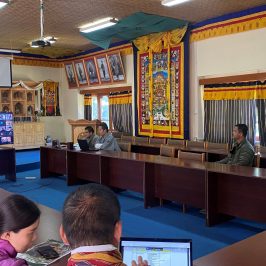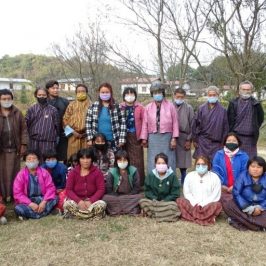![]()
The stakeholder consultation workshop for the revision of National Biodiversity Strategy and Action Plan (NBSAP) was held for the western region from 17th to 18th October 2013 at the National Biodiversity Centre, Serbithang. This is first of the series of consultation workshops that will be held throughout the country.
About 35 participants representing livestock, agriculture, forestry sector and environment from the western dzongkhags of Haa, Paro, Punakha, Wangdue Phodrang, Thimphu, Gasa and Chukha and Forests Division Office of Thimphu, Paro and Wangdue participated in the workshop.

This consultation workshop was organized with the objective to gather and discuss ground issues, challenges and priorities to be incorporated into the national document. It was also with the aim to formulate a NBSAP that will be practical, realistic and implementable by all concerned stakeholder agencies.
National Biodiversity Strategy and Action plan (NBSAP), commonly known as Biodiversity Action Plan (BAP) in Bhutan, is a strategic document which provide framework of action to enhance and ensure the productivity, diversity and integrity of biodiversity and natural systems. It is also one of the instruments to implement the objectives of the United Nations Convention on Biological Diversity (CBD), to which Bhutan became a party in 1995.

The first Biodiversity Action Plan (BAP I) was formulated in 1998 and since then, in order to address the changing needs and priorities, as well as to monitor the progress made, the BAP was revised twice, in 2002 (BAP II) and 2009 (BAP III).
The current revision of NBSAP/BAP is undertaken to address the gaps in conservation, sustainable use and equitable sharing of benefits from the use of biodiversity, bearing in mind the emerging needs and challenges that the country faces. It is also in line with the global effort to achieve the 2020 Global Biodiversity Targets, which were adopted in 2010 by the 10th Conference of the Parties, after the world at large failed to meet the 2010 Targets.




Leave a Reply
You must be logged in to post a comment.